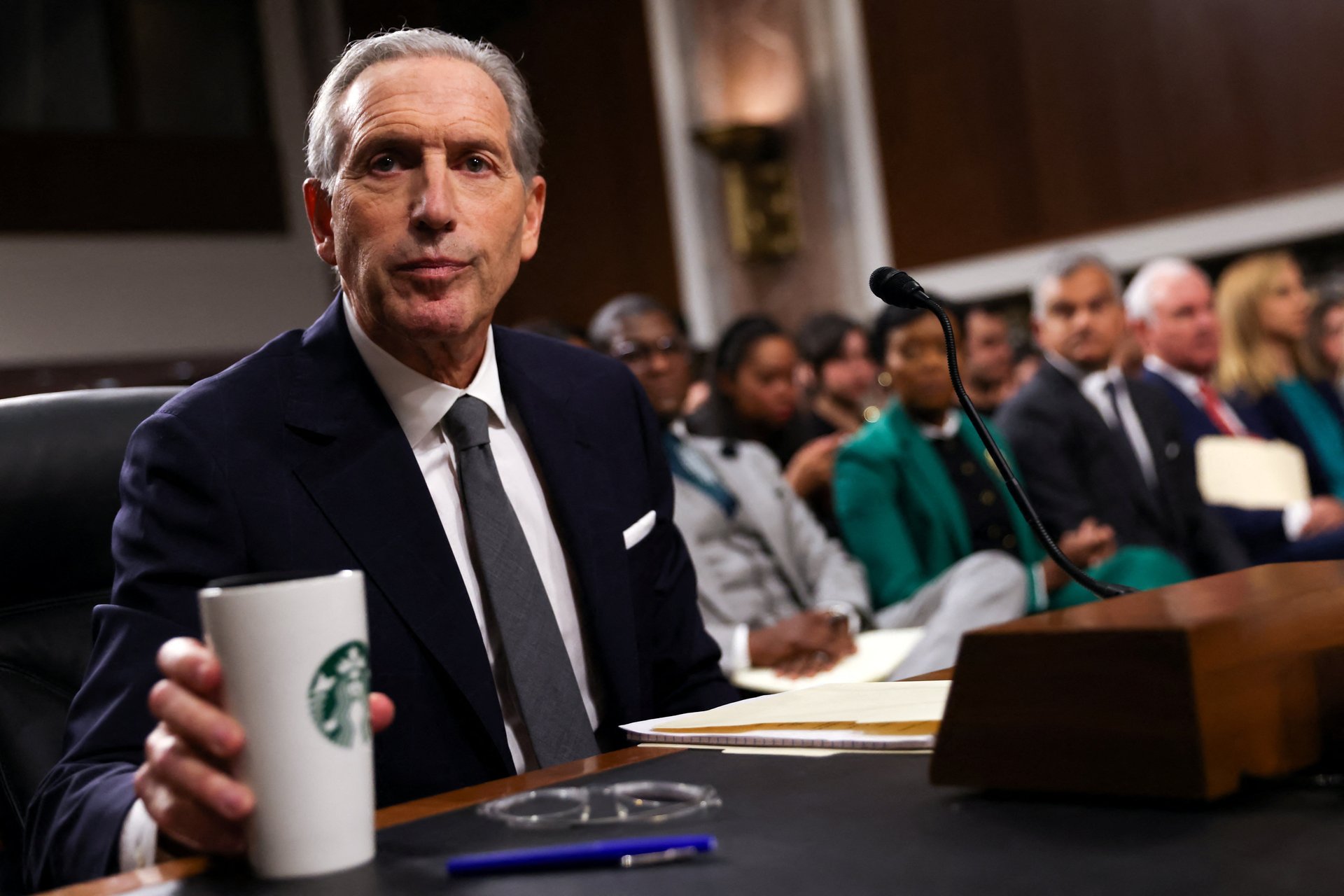🌎 Bing for your ad buck
Plus: A spotlight on Starbucks' record on workers' rights

Good morning, Quartz readers!
Here’s what you need to know
Ads are coming to Microsoft’s AI-powered Bing. The tech giants plans to share ad revenue with publishers whose content powered the chatbot’s response.
Disney ousted a Marvel veteran who had backed a critic of Bob Iger. Ike Perlmutter had a history of butting heads with the entertainment giant’s boomerang CEO.
The FDA approved Narcan to be sold over the counter in the US. Naloxone, the underlying medication in Narcan, reverses drug overdose caused by opioids, and making it accessible is a lifesaving measure.
Tennessee’s anti-abortion monument has yet to get any backers. A fund set up in 2018 to build a “Monument of the Unborn” has received no donations so far.
Jair Bolsonaro is heading back to Brazil. The former president’s return from his Florida sojourn is seen as a potential boost for the country’s far right.
A spotlight on Starbucks’ record on workers’ rights

“A large corporation shouldn’t necessarily be bragging about $15 to $20 wages. When you look at the typical structure of a large company, that should probably be $20-plus.”
—Republican senator Mike Braun of Indiana was not impressed with the minimum wage figures quoted by Starbucks chairman Howard Schultz in one of the contentious moments at the US Senate labor committee hearing yesterday. Lawmakers asked the company’s former CEO about the roughly 130 violations of labor laws—which he might just term “partner preferences”—submitted by the National Labor Relations Board in the last 18 months.
How’s your company doing re: remote work?
Not every employer has handled the WFH shift gracefully—but we want to hear about those companies who are doing it right.
Does your workplace…
🧠 Use digital tools to help teams overcome creative blocks?
🗣️ Or perhaps you have a manager who has vowed to adapt to an all-remote team?
🧳 What if you want to travel while you work—are they good with that?
↩️ If they’ve done an about-face on remote work, have they been open to your suggestions?
We’re currently accepting submissions for our annual Best Companies for Remote Workers report, and we want to know if your company should make our list!
Amsterdam is watching your online searches
Amsterdam kicked off its “Stay Away” ad campaign this week, targeting people who use very specific terms when searching online for things to do in the Dutch city. Plugging “pub crawl Amsterdam” into Google is just one of the phrases that’ll trigger ads telling you to keep your drugs and sex away from the city, thank you very much.
✦ Love stories about how global tourism is changing? Don’t stay away! Help keep our content free and accessible to all by becoming a member. Daily Brief readers get 50% off.
Surprising discoveries

There’s a new shape called the hat. The 13-sided configuration can tile a surface without repeating itself.
Mammoth meatballs were developed. Nothing says “save the planet” like growing food in a lab using the DNA of an extinct animal.
South Africa is the world’s most internet-addicted country. Most people there are online nearly 10 hours a day, about three hours longer than the global average.
Forget supermassive black holes. An ultramassive one was found that’s 30 billion times the mass of our sun.
Only 1.2% of people have a perfect credit score. Should we even strive for 850? Scott Nover and host Annalisa Merelli talk about why that might be unattainable in the last episode of the Quartz Obsession podcast, season four.
🎧 Listen on: Apple Podcasts | Spotify | Google | Stitcher
👀 Or: read the transcript!
Our best wishes for a productive day. Send any news, comments, hat backsplash ideas, and ultramassive doughnut holes to [email protected]. Reader support makes Quartz available to all—become a member. Today’s Daily Brief was brought to you by Morgan Haefner and Susan Howson.
Correction: Yesterday’s chart on firearm deaths was not a rate per 100,000. The numbers are the total number of deaths. Nationally, the rate of children killed by firearms in the US in 2020 was 5.38 per 100,000 or 4,368 deaths.